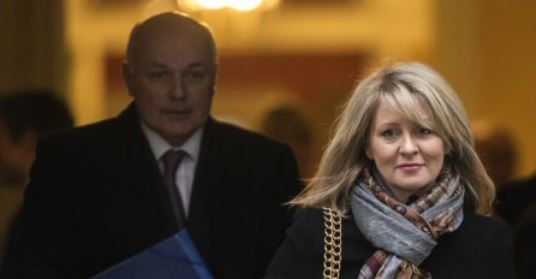
Claimants in Kirklees, West Yorkshire, including one with epilepsy, have won a PIP tribunal legal case against being scored too few points for “managing therapy or monitoring a health condition”.
Benefits minister Esther McVey had to concede the DWP is in the wrong and will again have to review PIP claims where people have been wrongly denied, as with the mental distress mobility discrimination.
It’s another case where the government made changes without consultation — one reason why the judge in the PIP mobility legal challenge quashed regulations which limited how many points people with mental distress could be scored for mobility needs.
More info about the PIP points for monitoring a health condition here.
Read the case report here or below by Garden Court Chambers North:
Secretary of State for Work and Pensions acknowledges getting law wrong again on meaning of PIP descriptors – will have to conduct review of old cases
30 May 2018

The Secretary of State for Work and Pensions (SSWP) has for the second time this year acknowledged an error in her department’s approach to the meaning of the Personal Independence Payment Regulations 2013. Coming after an error relating to the mobility activity ‘planning and following journeys’ which may have caused 220,000 individuals to be underpaid, the latest error affected individuals with chronic conditions needing regular monitoring or medication, such as diabetes and epilepsy.
The First-tier Tribunal (FTT) had decided that two claimants with chronic conditions were entitled to a Personal Independence Payment (PIP). The SSWP appealed to the Upper Tribunal (UT). But shortly before a test case hearing arranged before a three-judge panel of the UT for 21st May 2018, the SSWP withdrew her appeals (Secretary of State for Work and Pensions v AN & JM CPIP/1882/2015 and CPIP/1159/2016). Her related appeal to the Court of Appeal (Secretary of State for Work and Pensions v Birch C3/2017/0894) will now also be withdrawn. Both claimants will receive the disability benefit to which the FTT had decided they were entitled.
The appeals concerned the meaning of Daily Living Activity 3, ‘Managing therapy or monitoring a health condition’, before amendments were made to it in March 2017. The government had been arguing that ‘therapy’ excluded treatment which consisted of the monitoring of health and administration of medication. For example, one of the claimants in these cases was a person with type 1 diabetes and unusual sleep patterns, who needed someone to watch over him at night, sometimes administering insulin or glucose while he slept, to avoid diabetic coma and death. The FTT had decided he qualified for PIP. The government had argued in the appeal that he should be awarded only 1 of the minimum 8 points necessary to qualify for PIP.
As a result of withdrawing her appeals, the SSWP has accepted that, as with the case of her error relating to the mobility element of PIP, she will now need to review past claims relating to this descriptor, to identify other claimants who may have been underpaid. The government has not yet given any details of when or how that process will be carried out, or how many claimants it expects to be affected.
Further, the SSWP’s abandonment of her appeal may cast doubt on the legality of the changes she made to the Regulations in March 2017 regarding Activity 3. When making those changes, she did not consult before doing so. Following the SSWP’s concession in these test cases, it now appears that the SSWP was, through the March 2017 amendments, making a significant change in the law. In RF v Secretary of State for Work And Pensions [2017] EWHC 3375 (Admin) (21st December 2017), the High Court quashed the SSWP’s other attempt to amend the Regulations, partly because the SSWP had failed to consult before making those changes (RF, §63).
Tom Royston acted for the claimants AN and JM, instructed by Kirklees Citizens Advice and Law Centre.

Reblogged this on Britain Isn't Eating.
Reblogged this on sdbast.